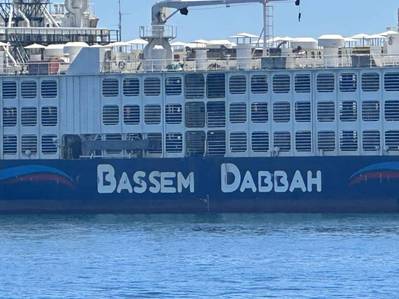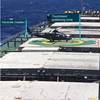Animal Welfare Groups Decry Bahijah Re-Export Decision
The Australian Alliance for Animals and the RSPCA have expressed dismay over the decision by Australia’s Department of Agriculture to allow the re-export of more than 15,000 sheep on board the Bahijah to the Middle East.
Originally, 16,000 Australian sheep and cattle were onboard the Bahijah for over a month after the vessel departed from Australia and then turned back from the Middle East due to maritime security concerns in the Red Sea. It was then recalled to Perth by the Department of Agriculture.
The animals were unloaded after the Department rejected a plan for their immediate re-export. Now, they are to be re-loaded and taken the long way around Africa to reach Israel after 33 days of sailing.
The Bahijah originally left Perth on January 5, and Israeli-based exporter Bassem Dabbah Shipping submitted the application for re-export on January 26. Unloading of most of the animals began on February 9, and they have been kept at quarantine facilities since then. The vessel is now reportedly restocking fodder ready for reloading the livestock.
Australian Alliance for Animals spokesperson Dr Jed Goodfellow described the move as a failure to put animal welfare first after the sheep had already spent more than a month at sea and in heatwave conditions.
“This will be a black mark against the Department of Agriculture, which has previously claimed that animal welfare is at the heart of its decision-making. This decision shows that couldn’t be further from the truth,” he said.
The federal government made a commitment to end live sheep exports at the 2022 federal election but is yet to publicly release a transition plan that includes clear legislative timelines.
“Many producers have already moved towards more ethical and sustainable markets, strengthening rural economies through increased investment and value-adding in local supply chains via the chilled meat export trade, creating new jobs and providing producers with a profitable and secure income stream,” said Goodfellow.
RSPCA Australia Chief Science Officer Dr Suzie Fowler said: “We know that live export poses cumulative and unacceptable welfare risks to sheep – and this will be especially the case for these sheep who have suffered a circuitous, and most of all, completely unnecessary, journey.
“In fact, this will be the longest planned and approved live export journey for sheep in recent memory,” she said. “In what world is it acceptable to keep animals standing in their own waste for 30+ days?
“In what world is it acceptable to force them to endure motion sickness, heat stress and constant noise and light?
“And in what world is it acceptable to, just weeks later, make them do it all again?”











